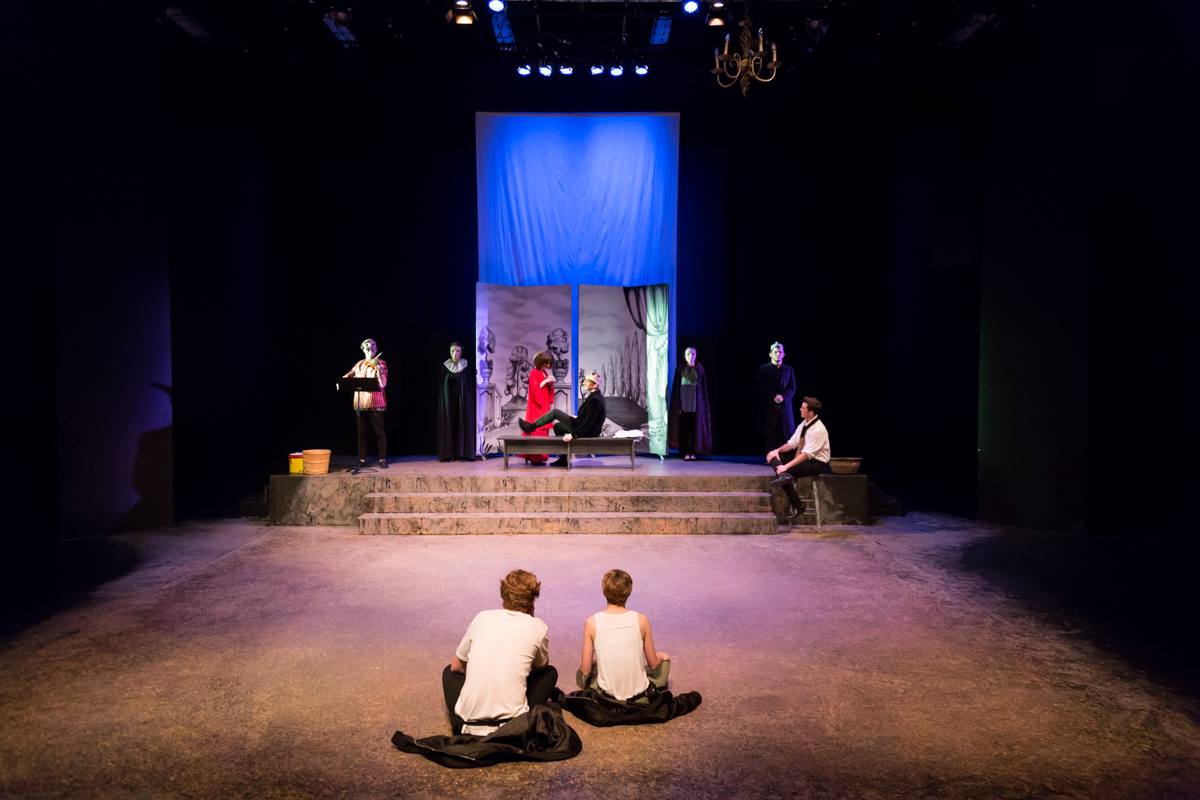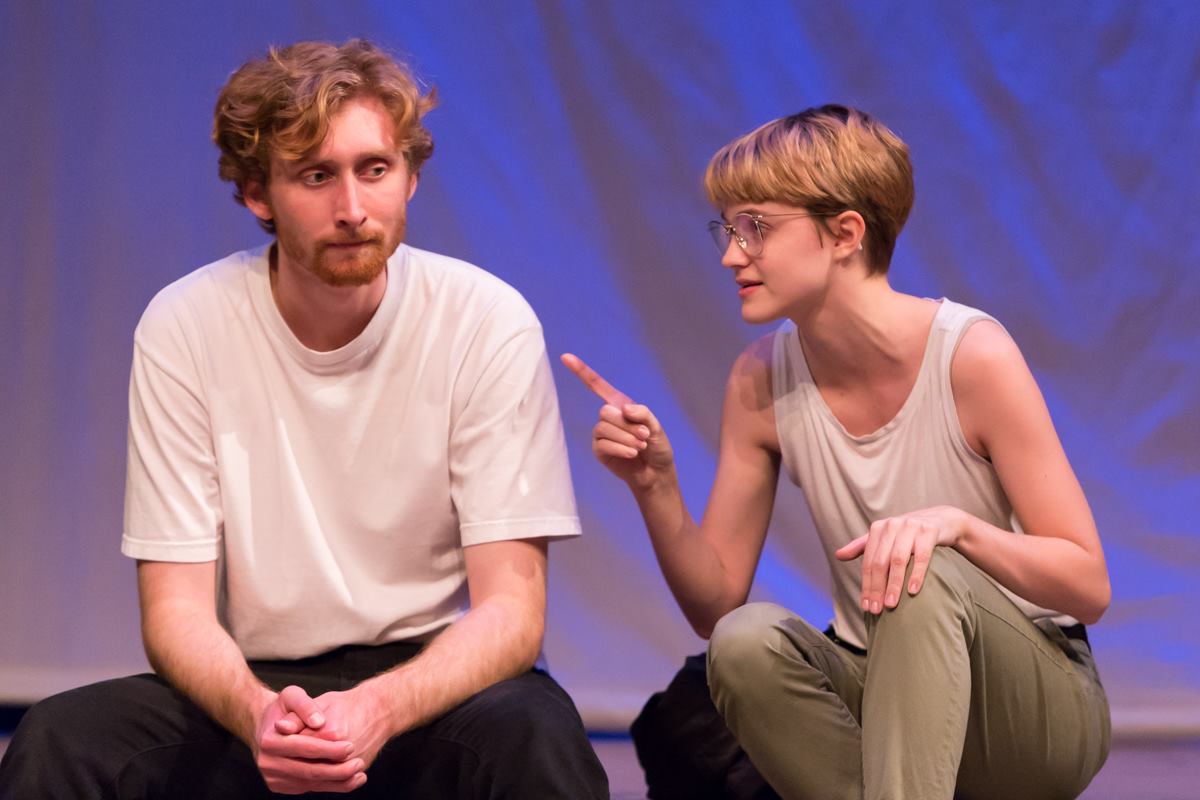Audiences were treated to a blend of humor, death and metatheatre over the weekend with Theatre St. Thomas’ rendition of Rosencrantz and Guildenstern are Dead.
The tragicomedy, written by Tom Shoppard and directed by Ilkay Silk, follows the titular characters during the events of Shakespeare’s Hamlet as they try to make sense of their roles in their own reality. When a mysterious theatre player finally helps them realize their fate, they try in vain to take control before eventually giving in to their fated deaths.
The crux of the story is in its self-predicting absurdity: whether its being attacked by pirates when they feel things are boring or witnessing a play that eventually mirrors and predicts their deaths, Rosencrantz and Guildenstern intentionally blurs the lines between fantasy and one’s own reality. Because the duo’s main purpose in the original play was serve as pawns for the sake of the story, their point of view, and therefore the play, is bizarre, bittersweet and intriguingly confusing.

“It’s very metaphysical,” said Silk, who has directed at TST for 36 years.
“It’s a comedy but it looks at death and our ideas of death and what death can be.”
Paralleling the characters’ lives to our own plays puts a spin on the Shakespearean phrase “Life’s but a walking shadow,” bringing up the idea that not only is our reality no different from a fictional character’s, but that the randomness of our lives is from a higher design.
The Tragedians, a travelling theatre troupe lead by a figure deemed the Player, served as the play’s chorus and clarify the message to Rosencrantz and Guildenstern as well as the rest of the audience. The Player, portrayed by Ben Smith, uses his charisma to lead the Tragedians and charm the audience, and promotes a stoic acceptance towards fate in a way that juxtaposes the duo’s constant scramble for order and control. However, the Player’s control over his life, coupled with his apparent omnipresence and all-knowingness, makes him appear as a god-like figure, which he even alludes to with the phrase “We aren’t people, we’re actors.”

Despite the tragic ‘man versus god’ storyline, Rosencrantz and Guildenstern offers an array of comedic moments by balancing out random situations and philosophical rants with skilled comedic timing and word-play. Sage Chisolm and Robbie Lynn complemented each other as Rosencrantz and Guildenstern respectively — to the point where the two characters often had their names switched by other characters — with Rosencrantz’s childlike nature contrasting Guildenstern’s neuroticism and tendency to take charge. This, coupled with their contrasting heights and years at STU (Chisolm is a first-year while Lynn is a fourth-year), created a physical difference that only added to their dynamic on stage.
“With any character, because so much has to come from you, every character has a part of you in it,” Chisolm said.
“The hardest part of a character is finding the parts of you that you don’t like, because in every character you’re going to find faults because everyone has them, and when you realize the character’s faults are the same as your own you have to kind of battle with that.”
Silk, who performed this play once before 11 years ago, said that the play is perfect for university students for its complexity, age range and subject matter.
“Most of the characters are young: Hamlet’s young, Rosencrantz and Guildenstern are young, the Tragedians can be young; but it’s also very challenging,” said Silk.
“It has a very challenging script that can take these young performers to the next level.”

